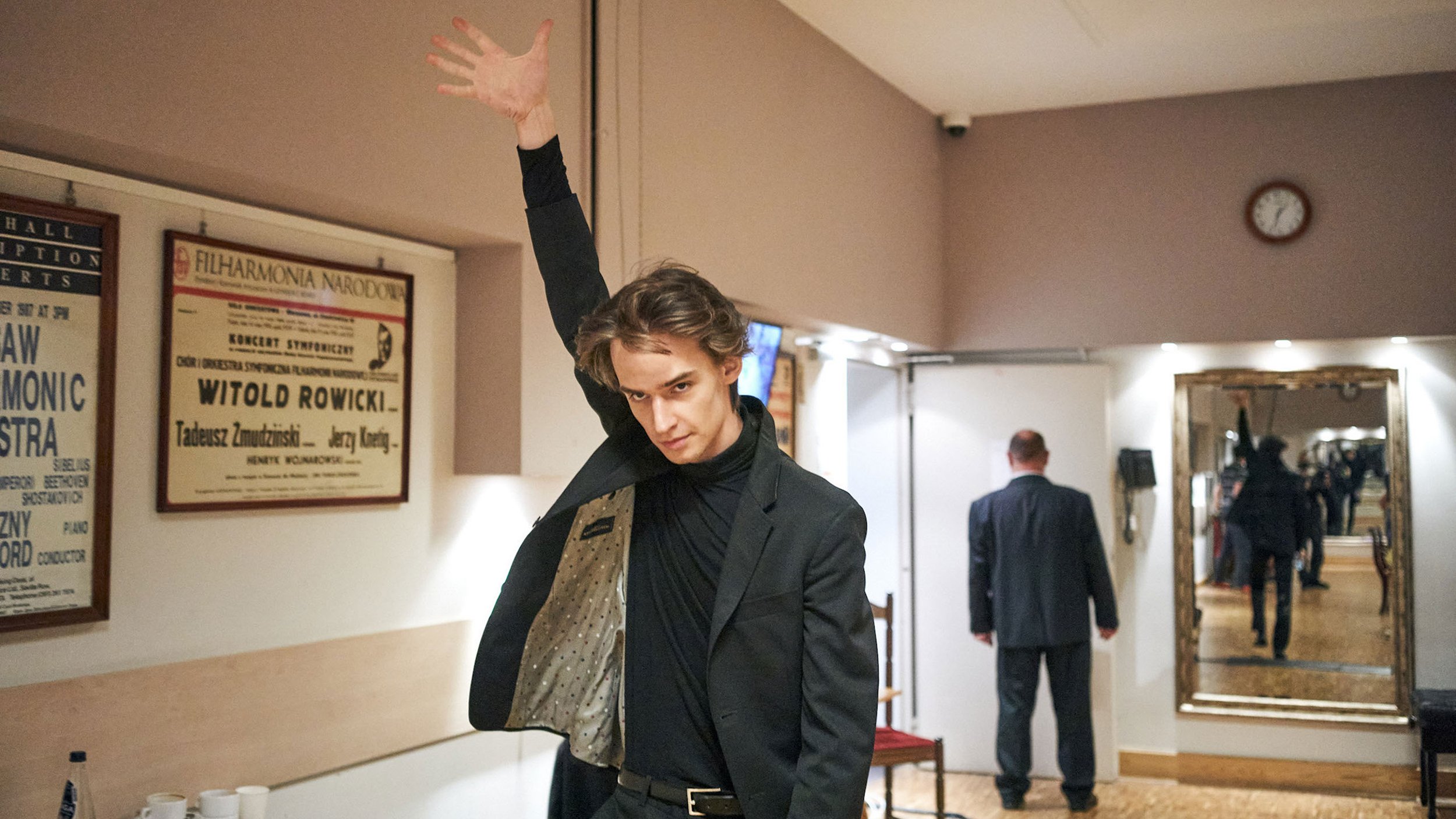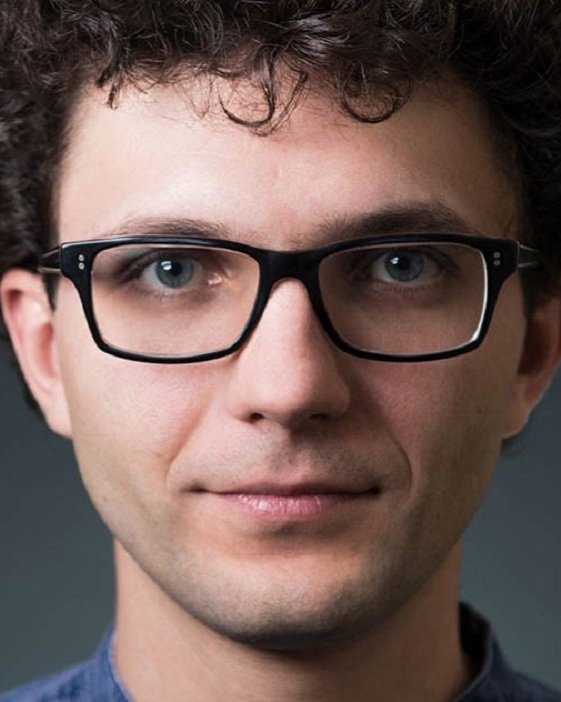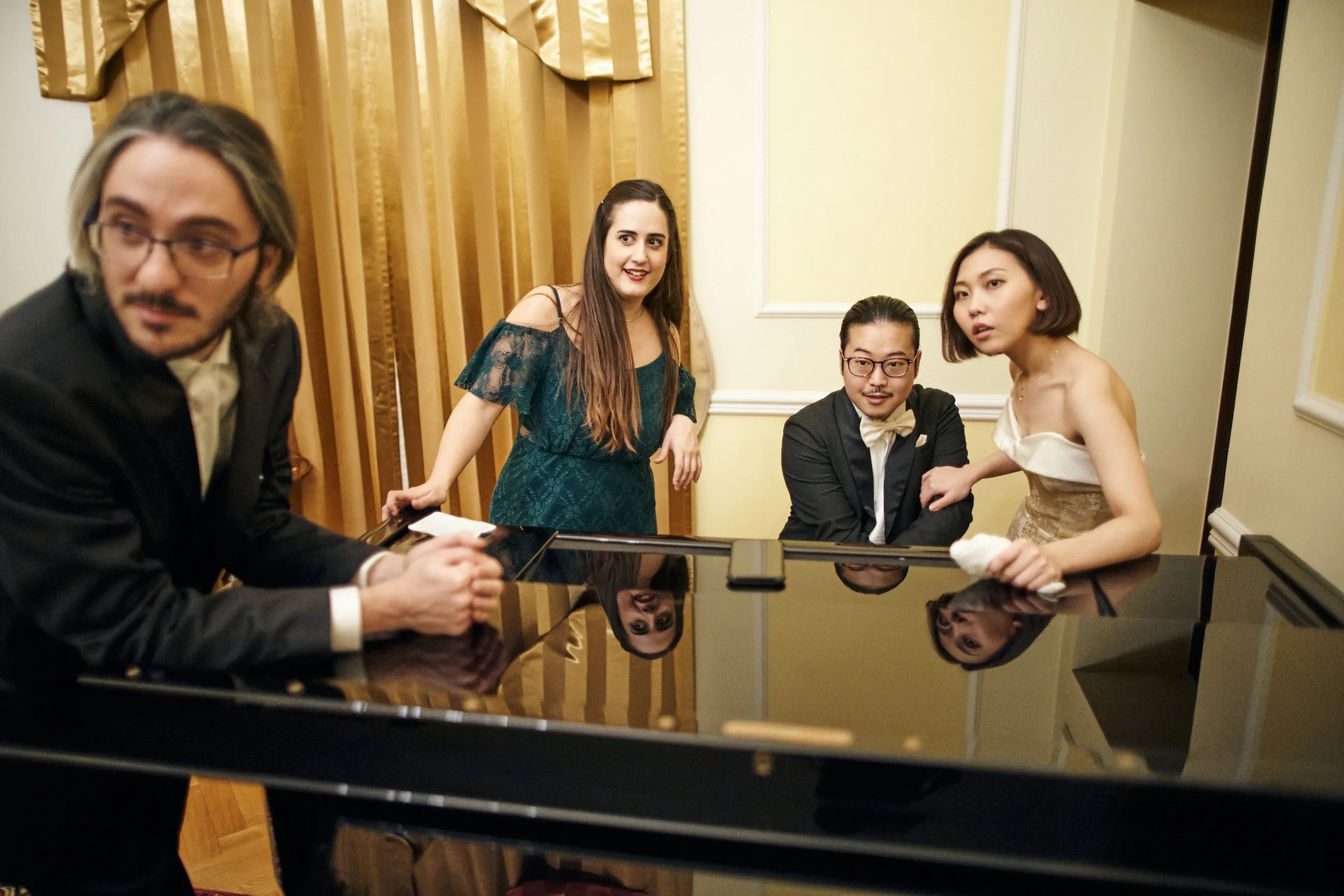Stir Q&A: PIANOFORTE captures all the agony and ecstasy backstage at the renowned Chopin Piano Competition
Filmmaker Jakub Piątek’s compelling new documentary follows a handful of charismatic young keyboard stars through the world’s most prestigious classical-music contest
Marcin Wieczorek is one of the young competitors followed in PIANOFORTE.
PIANOFORTE screens September 30, 3:30 pm at SFU Woodward’s and October 3, 6:15 pm at International Village with Q&As at both screenings, as part of the Vancouver International Film Festival
IT IS ONE OF the most tense and nailbitingly suspenseful documentaries about elite competition that you are likely to see at the Vancouver International Film Festival. But Polish filmmaker Jakub Piątek’s PIANOFORTE is not about football players, ski racers, or marathon runners: it is about the impossibly gifted young pianists who compete in the International Chopin Piano Competition in Warsaw.
Held every five years, the contest has launched the careers of some of the biggest names in piano since its founding in 1927. But as Piątek so compellingly shows, it has also crushed the dreams of countless keyboard talents who have put their lives on hold to take part in the event. Following lively, likable subjects from as far afield as China and Italy, Piątek captures them practising Nocturnes and sonatas all day and all night in hopes of their big break. (China’s good-natured Hao Rao plays at a piano that practically sits in the kitchen of his parents’ highrise apartment.) We join them before their performances in Warsaw, stretching their arms, pacing the halls, or freaking out with stage fright. And we see them afterwards, as they collapse in post-90-minute-playing puddles of tears, joy, and adrenaline overload. There’s serious young Russian-Armenian Eva Gevorgyan; charismatic, Chopin-haired Pole Marcin Wieczorek; upbeat Italian Leonora Armellini, who lets loose on a Metallica cover on a brief break at a bar; and more.
Stir caught up with Piątek before the film debuts here as part of VIFF’s arts-oriented Portraits series to talk about the agony and the ecstasy he encountered backstage at one of the most followed competitions in the entire classical world. And just how did he manage to choose to focus on so many subjects who made it to the finals?
In your documentary one artist likens the competition's pianists to perfectionistic "machines" or like "marines", but you're able to find such an incredible humanity to them. What was your approach and process to gain that intimacy with your subjects?
From the beginning, we primarily wanted to see young people in our protagonists, so that the film would be closer to a coming-of-age story. I also assumed from the beginning that we were rather working on a film that was about not winning, just by virtue of the calculus of probability. The emotions associated with not winning are close to my heart, as they are for most people—in general we know more about not winning than about winning.
Jakub Piątek.
We gained this kind of intimacy primarily by the fact that we started shooting the film before the competition happened. A few months before, we visited them in their homes with our camera, met their relatives and teachers, had lunch together, and so on. This brings people together, so when the time of competition came, they allowed us to get closer and be with them in the moments that are in the film.
We imagine that when they reach such an elite level of artistry that they would be used to performing—but it seems like stage fright, and that adrenaline, is always a huge part of it. Your film lets us in on those moments of intense stress and all the different ways that people process it. How did you negotiate filming those moments without being intrusive, or somehow interrupting the concentration that is so crucial to this make-or-break chance in their careers?
For me and the whole crew, the priority was the performance of our protagonists. After all, this is the moment for which they have been preparing for several years or even a lifetime. As such, we worked in ninja mode, fly-on-the-wall kind of style. The organizers of the competition didn't know who we were following for the entire duration of the competition.
Because of the fact that we chose protagonists before the competition we managed to get to know and trust each other. Very often after arriving in Warsaw we were one of the closest people to them. Of course, there were times when someone told us they wanted to stay alone—we had to respect that. But I also remember such a situation with Eva Gevorgyan, before the final concert, in which she explicitly asked us to stay with her until the very end; she didn't want to be alone before going on stage.
When inviting protagonists to participate in the film, we agreed that we were primarily interested in people, and not in pianists’ ranking. And that we wanted to be with them all the way, regardless of the final outcome. The Chopin Piano Competition takes place over 21 days without interruption. By its emotional intensity, it becomes a kind of hostage situation. It also fosters a deeper bond.
How did you choose your subjects, and how on earth did you manage to focus on four people that would go on to the final round? And how emotionally involved did you and your documentary team become in their journey?
Before the main competition in October, there is a preliminary round with 160 participants. We worked on this film during the pandemic, so I asked all of them to record short video at their homes. They answered a couple of questions; I could watch all of it and I did my research. Then I had about 50 in-depth online conversations with the qualified pianists. Then, I accompanied the selected pianists during the preliminary round for the competition a few months before the event. At that time, I chose our characters. I wasn't guided by the piano rankings, but by my documentary interest and intuition. In a way, making the film was a bet with the competition itself. The night during which the results of Stage One were announced might easily have seen our selected characters going home. Statistically, we should have had 1.5 characters in the final, and yet we had so many more. I had a similar deal with our characters: we were in that together, no matter where they'd end up, the final or the plane home. That sort of trust between the crew and the characters lay the foundations for this film.
Of course, shooting the film was an emotional rollercoaster for me and the team. The night with the announcement of the results of the first stage, when we did not know if we would shoot returns at the airport the next day, was super stressful. Or the prolonged wait for the final results—a shooting day that lasted indefinitely and which I remember as if through a fog. Our protagonists allowed us to be present at amazing moments, beautiful but also difficult. Of course, there is a burden, but at the end of the day, as a director, I'm glad I had front-row seats to witness it.
What was the atmosphere like in that ornate, red, white, and gold theatre for those three weeks? In the film, it almost looks like this surreal mix of centuries-old tradition with the inevitable arrival of social-media posting and autograph sessions.
It's funny that you ask that. I had a very similar feeling. We shot the film using film lenses from the 1970s, and inside the National Philharmonic Hall in that warm wooden setting, we could feel like we were in the 1970s or 1980s. What betrayed the modern era were smartphones and social media. The competition itself, by its long tradition and prestige, is also a media circus with millions of views on TV or streaming on YouTube—also with its craziness with comments not only on music but also looks of hairstyle. This kind of contrast between the philharmonic hall and the outside world was incredible. This edition of the Chopin Piano Competition was also amazing because of Covid. The competition was postponed for a year. For some of the pianists, especially from China, it was their first performance with a live audience in two years. This kind of magical atmosphere of special meeting and the tension associated with it was omnipresent.
Some of the young stars from around the world in PIANOFORTE.
With so much Chopin filling the film, why did you choose to offset it with such a cool alt-rock soundtrack when you went into editing?
This type of music accompanied me as I entered adulthood. The songs that are in the film accompanied us during the editing stage, and I'm glad that we managed to get the rights to them. This choice was important to me also as a kind of contrast to the world of classical music, with a kind of elitism reserved for it.
I understand you came into this project with little familiarity with the classical music and piano scene. What most surprised you about that world as you were filming?
My family has no musical roots; I didn't attend a music school. At primary school, I was asked to join a school choir on account of my height. When my teacher heard me sing at a rehearsal, she told me to learn the lyrics and only lip-synch to songs without uttering a single sound. I developed an interest in classical music much later, just a few years ago. It is this sort of fascination with the rather inaccessible world that I wanted to retain in my film: to tell the story of a few young people from the perspective of an amateur who experiences music through emotions.
I tried to treat my lack of formal musical training as an asset. I was able to ask questions as a civilian and was more interested in the human side of the competition than the piano side. Of course, in our team there were people who deal with classical music on a daily basis. It was extremely important for us to pay tribute to both the composer and our artists, who are once again reinterpreting this music. Hence the extremely careful editing of musical sequences, in which every time you see someone you also hear him or her perform.
















